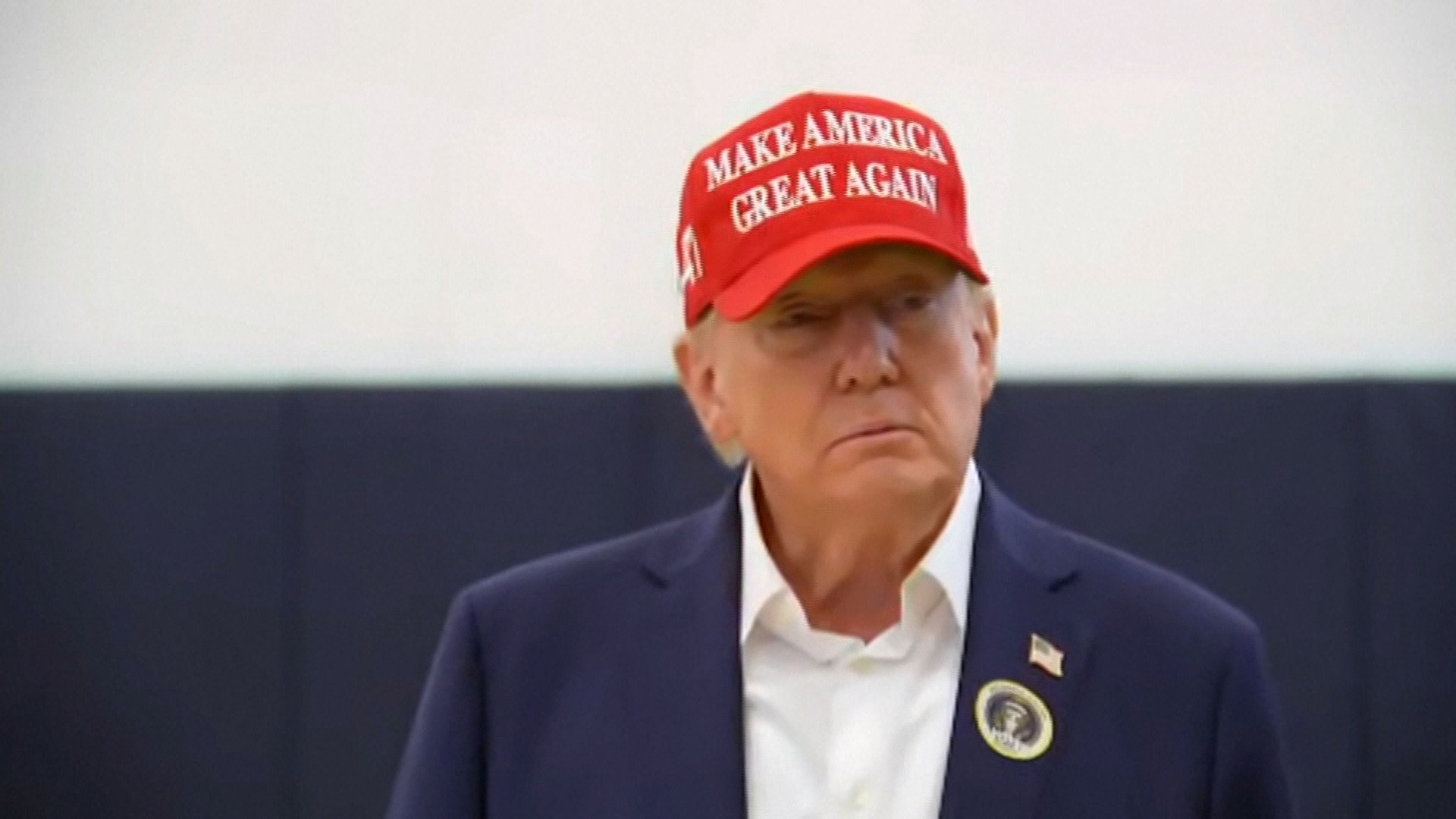The original version of this story was published on Jan. 30, 2024
Can an elected president hold office from behind bars?
WATCH ANYTIME FOR FREE
>Stream NBC10 Boston news for free, 24/7, wherever you are. |
The answer is, simply, yes.
A convicted or imprisoned felon can not only campaign for president and other federal offices, but also be elected.
Get updates on what's happening in Boston to your inbox. Sign up for our >News Headlines newsletter.
Can a felon run for president?
Questions regarding the ability of a potential convicted felon to run for president were as timely as ever ahead of the 2024 campaign and election. Former President Donald Trump, the Republican nominee, in May was found guilty on all counts in connection with falsifying records related to a hush money payment to adult film actor Stormy Daniels during his 2016 presidential campaign.
The U.S. Constitution, however, does not explicitly prohibit a presidential candidate from running for office while under indictment, or even while serving time behind bars.
Eligibility requirements for presidents state only that they must be at least 35 years old, be a natural-born citizen of the United States, and have been a resident of the country for at least 14 years.
So, a criminal record, an orange jumpsuit and being on the wrong side of prison bars would not necessarily prevent an elected candidate from becoming president. It's the voters who have the power to do that.
Has anyone run for president from prison?
Just over a century ago, Eugene V. Debs served as the Socialist party's nominee in 1920 while he was imprisoned for speaking out against World War I and convicted under the Sedition Act.
Debs ran as a free speech martyr and collected about three percent of the vote, which was about 915,000 votes.

Can you run for Congress if accused or convicted of a crime?
United States political candidates have campaigned from jail in the past to varying degrees of success.
Vermont congressman Matthew Lyon in 1798 won re-election while imprisoned under the Sedition Act for speaking out against President John Adams, becoming the only federal candidate to do so while in jail.
Beleaguered New Jersey Democratic Sen. Bob Menendez, currently under indictment, campaigned throughout his first bribery-related indictment from 2015 to 2018. After those earlier charges were dropped, he won another six-year term.
Can Trump be president if convicted?
The Constitution does not specifically disqualify candidates for public office due to criminal records.
Some people have argued that Trump's actions are different because they violated a key part of a constitutional amendment.
Some courts and election officials have also argued that Trump's actions before and on the day of the Capitol riot on Jan. 6, 2021 should deem him ineligible for office under Section 3 of the 14th Amendment, which disqualifies people who “engaged in insurrection or rebellion” after taking an oath to support the Constitution.
Can Donald Trump vote?
In another interesting twist, though, while Trump would not lose the ability to run for president if convicted of a felony, he nearly lost the right to vote.
Trump is registered to vote in Florida, where most disenfranchised felons do not regain their right to vote until after completing their full sentence, including parole or probation.
According to CNN, Trump was permitted to vote in Tuesday's election because, under Florida law, if a voter has an out-of-state conviction, Florida will defer to that state’s laws for how a felon can regain voting rights. Those with felony convictions in New York, under a 2021 law, are permitted to vote if not serving a term of incarceration at the time of the election.



